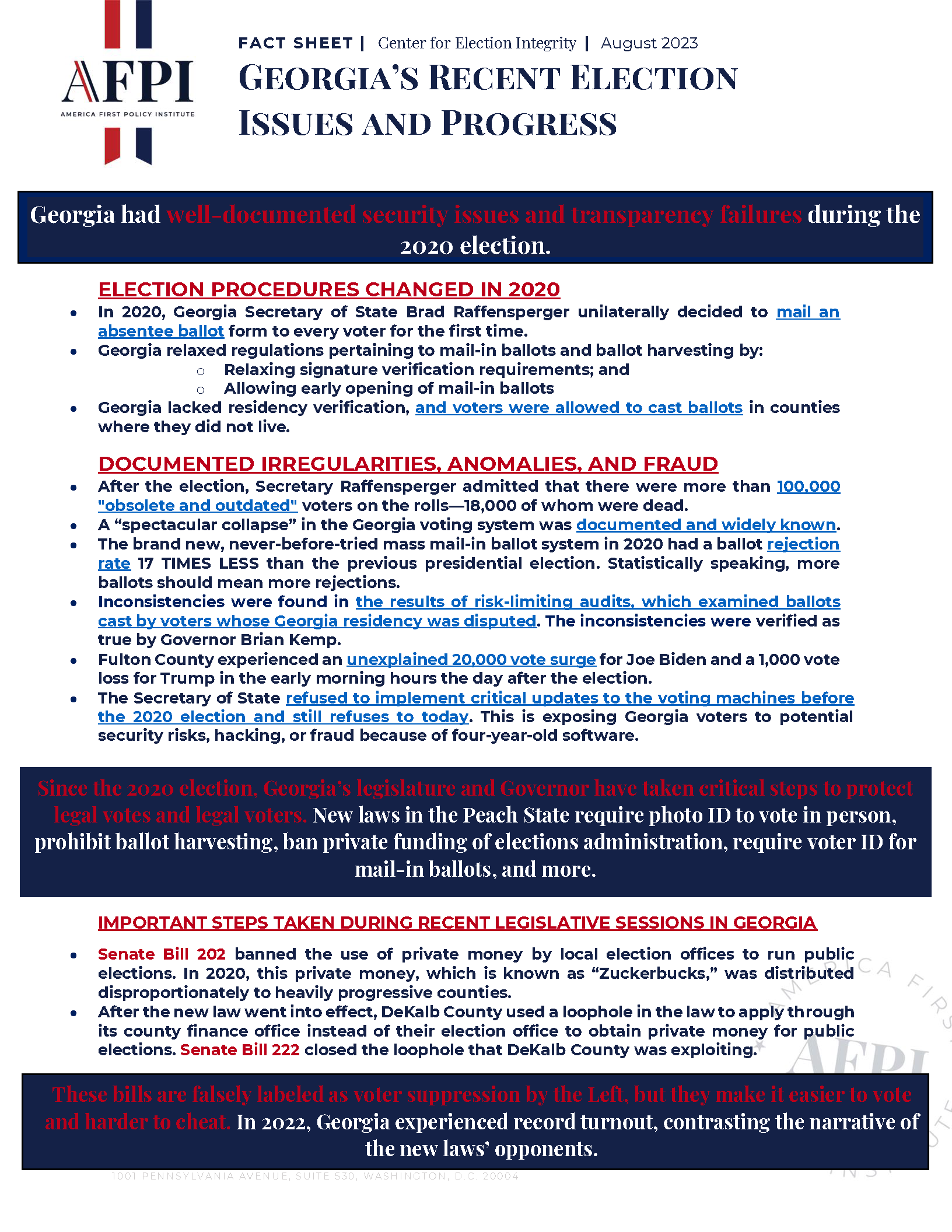August 28, 2023
Georgia’s Recent Election Issues and Progress
Georgia had well-documented security issues and transparency failures during the 2020 election.
ELECTION PROCEDURES CHANGED IN 2020
- In 2020, Georgia Secretary of State Brad Raffensperger unilaterally decided to mail an absentee ballot form to every voter for the first time.
- Georgia relaxed regulations pertaining to mail-in ballots and ballot harvesting by:
- Relaxing signature verification requirements; and
- Allowing early opening of mail-in ballots
- Georgia lacked residency verification, and voters were allowed to cast ballots in counties where they did not live.
DOCUMENTED IRREGULARITIES, ANOMALIES, AND FRAUD
- After the election, Secretary Raffensperger admitted that there were more than 100,000 "obsolete and outdated" voters on the rolls—18,000 of whom were dead.
- A “spectacular collapse” in the Georgia voting system was documented and widely known.
- The brand new, never-before-tried mass mail-in ballot system in 2020 had a ballot rejection rate 17 TIMES LESS than the previous presidential election. Statistically speaking, more ballots should mean more rejections.
- Inconsistencies were found in the results of risk-limiting audits, which examined ballots cast by voters whose Georgia residency was disputed. The inconsistencies were verified as true by Governor Brian Kemp.
- Fulton County experienced an unexplained 20,000 vote surge for Joe Biden and a 1,000 vote loss for Trump in the early morning hours the day after the election.
- The Secretary of State refused to implement critical updates to the voting machines before the 2020 election and still refuses to today. This is exposing Georgia voters to potential security risks, hacking, or fraud because of four-year-old software.
Since the 2020 election, Georgia’s legislature and Governor have taken critical steps to protect legal votes and legal voters. New laws in the Peach State require photo ID to vote in person, prohibit ballot harvesting, ban private funding of elections administration, require voter ID for mail-in ballots, and more.
IMPORTANT STEPS TAKEN DURING RECENT LEGISLATIVE SESSIONS IN GEORGIA
-
Senate Bill 202 banned the use of private money by local election offices to run public elections. In 2020, this private money, which is known as “Zuckerbucks,” was distributed disproportionately to heavily progressive counties.
After the new law went into effect, DeKalb County used a loophole in the law to apply through its county finance office instead of their election office to obtain private money for public elections. Senate Bill 222 closed the loophole that DeKalb County was exploiting
These bills are falsely labeled as voter suppression by the Left, but they make it easier to vote and harder to cheat. In 2022, Georgia experienced record turnout, contrasting the narrative of the new laws’ opponents.
